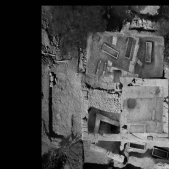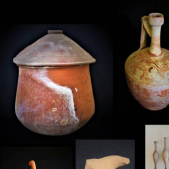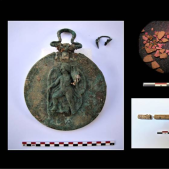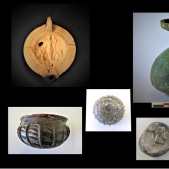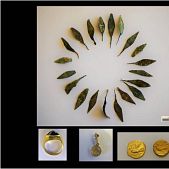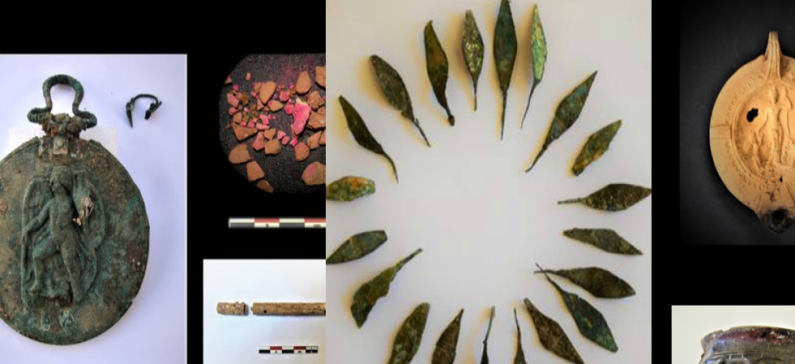
The remains of the ancient city of Tenea were discovered
The remains of the ancient city of Tenea, which refer to the Hellenistic and Roman times, were brought to light by a team of Greek archaeologists. The research takes place for the fifth year in Ancient Teneas in Chiliomodi, Corinth. The archaeological research of Ancient Teneas is under the direction of Dr. Elena Korka. The have unearthed jewels, coins and other artifacts while excavating tombs near the ruins of the ancient city of Corinth, dating between the fourth and first centuries A.D.
Excavations were mainly centered around the burial ground with two distinctive chambers, built when Greece was part of the Roman Empire. It was revealed in 2016 and confirmed the timeless use of the site from the archaic to the Roman times. Five of the most well-appointed tombs, the experts pointed out, would have belonged to wealthy inhabitants of Roman Greece. Bodies were found alongside elaborate gilded bronze leaves, a golden ring, precious stones and gold and bronze coins from the surrounding region. Among the other ritualistic items buried with the dead were perfumes, artefacts made of gold, gold foil and elaborately crafted glassware, along with items of pottery. Also within the dig site the archaeologists recovered items from a set of different burial plots. Fourteen graves, organised in circles, as was Roman convention, yielded a number of gold and and silver coins, vases and a series of lamps, the most striking of which bore depictions of the Roman goddess Venus and two cupids.
Of special interest to the excavation team, led by Elena Korka, were the older Greek parts of the structures. One side of the Roman burial monument was built above a typical rectangular Hellenistic basement made of limestone and then coated in a thick layer of mortar. In other areas they discovered evidence of graves from the earlier Greek period, pottery including a figurine in the shape of a dove and other ritual items such as perfume. It also appeared some of the lower vaults in the buildings would have been associated with other Greco-Roman rituals.
The period of Roman rule in Greece started following the destruction of Corinth, when the Roman Empire annexed the Greek heartlands and crushed the Peloponnesians, the Greek people living in the southern part of the country.

